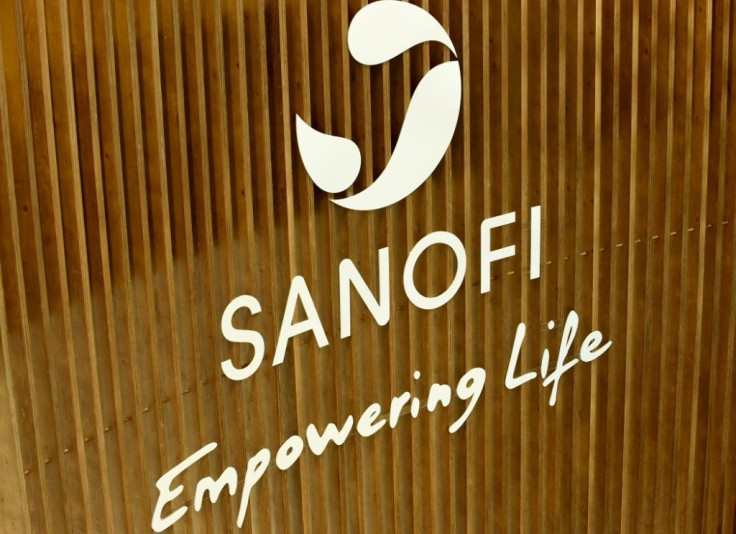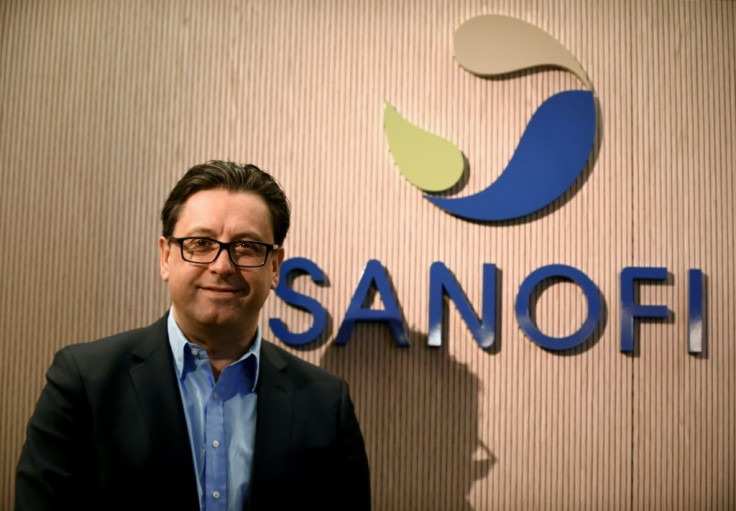5 Things To Know About Sanofi
Its products are a fixture of most French households, but its boss is British and he's caused outrage by declaring America first for any coronavirus vaccine.
Here are five things to know about the Paris-based pharmaceuticals group Sanofi, whose Manchester United-supporting CEO Paul Hudson just got a yellow card from the French government for his vaccine remarks:
Sanofi employs some 100,000 people worldwide and makes products in 32 countries. Its turnover last year was 36 billion euros ($39 billion).
It was founded in 1973 with just 10 staff as a spinoff from the French oil group Elf Aquitaine. A global acquisitions spree followed.
Two deals stand out: in 1999 the company merged with a subsidiary of L'Oreal to become Sanofi-Synthelabo.
Then, it turned its sights on Franco-German rival Aventis, which initially resisted its overtures.

After a protracted process that turned highly political in both Paris and Berlin, Aventis succumbed in April 2004.
In 2011, the Sanofi-Aventis combine shelled out more than $20 billion for the US biotechnology firm Genzyme, and changed its own name back to just Sanofi.
In September, Hudson became Sanofi's first non-French speaking boss as the ambitious company turned to a global executive with experience in the United States and Japan.
Hudson, who grew up in Manchester, previously held senior roles at Novartis and AstraZeneca.
This week he caused a stir when he said that Americans would have priority to any coronavirus vaccine developed by Sanofim, as their government is helping to fund the company's research.
President Emmanuel Macron's office said it would hold talks with Sanofi executives at the Elysee Palace early next week, insisting that any vaccine be treated as "a global public good, which is not submitted to market forces".

In February, following a three-year probe, Sanofi was charged in France with failure to adequately warn patients and causing injury over an anti-epilepsy drug linked to birth defects.
Sanofi vowed to fight the charges, insisting it had been transparent about potential side-effects of the drug, which is marketed around the world as Depakine among other names.
Sanofi also denies claims in the Philippines of causing the deaths from 2016 of several dozen children who received its drug Dengvaxia, the world's first vaccine against dengue fever.
Manila banned the drug after a nationwide panic among parents, although a government-commissioned investigation found no conclusive proof that Dengvaxia was to blame.
Like other drug companies, Sanofi has also been dogged by litigation in the United States, including an accusation in Minnesota of price-gouging over an insulin treatment.
With medications such as Doliprane (paracetamol) and treatments like Mitosyl, a cream for nappy/diaper rash, Sanofi products are a mainstay of French bathroom cabinets.
The group's pharma lineup also includes the cardiovascular drugs Plavix and Aprovel/Avapro, and treatments for diabetes.
One of its best-selling "blockbuster" drugs is Dupixent, used for eczema and asthma among other conditions.
Through its unit Sanofi Pasteur, the firm is a leading producer of vaccines, and like rivals is engaged in a breakneck hunt to develop one against the COVID-19 coronavirus.
A patina of chic has also attached to the company. In 1993 it took over the fashion house Yves Saint Laurent, before selling it six years later to French billionaire Francois Pinault.
Sanofi also had a perfumes and cosmetics business which it sold in 2008 to L'Oreal, which today has a stake of 9.4 percent in the pharma group.
© Copyright AFP 2024. All rights reserved.





















